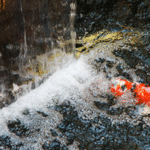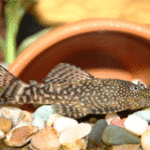Last updated September 2018
There are many types of algae and they are a vital part of the marine and fresh-water ecosystems. Most species of algae are harmless.
However under certain environmental conditions, a microscopic algae referred to as “Karenia Brevis” develops and it’s harmful to marine and bird life. This algae can start growing rapidly, creating blooms that give the ocean a reddish appearance.
This is most often referred to as ‘red tide’ and the algae commonly known as red marine algae. This type of algae has the ability to produce powerful toxins. The toxins are also referred to as brevetoxins and have been responsible for killing fish in the millions.
How red marine algae affects fish
Toxins from the red marine algae accumulate within tissues of the fish, shutting down its neurological function. This results in their death. The red marine algae, or red tide as it’s referred to, has been responsible for destroying entire fishing industries. The shorelines declared unsafe for humans to inhabit. This has wide ranging effects on the economies of those areas that depend on fishing.
A major problem is the difficulty in pinpointing ‘red tide’ because its movement depends on the winds and tides. Waters in the Gulf of Mexico, Florida, Scandinavia, Japan, Caribbean, and South Pacific have all been affected by Red Marine algae.
How does it affect humans?
Red marine algae also causes public health concerns. Apart from killing fish, the toxins have the ability to accumulate within the tissues of shellfish that at one time have fed on the red algae. Eating these shellfish can cause humans to suffer shellfish poisoning.
This form of food poisoning can cause neurological as well as gastrointestinal symptoms & nausea that’s quite severe. Symptoms may also include toes and fingers that are tingling or itchy. There are a variety of ways in which the red algae affects humans and makes us unwell.
Scientists are researching the impact of swimming in waters that are red algae infested. Researchers have been able to conclude that inhaling or swimming in waters with such toxins may cause irritations in the eyes, throat and nose. You may start coughing and experience shortness of breath. People suffering from asthma can experience severe chest tightness if exposed to such toxins.
Red algae therefore has the ability to affect not only fish but humans who eat fish and shellfish exposed to the algae.
The effect of the toxins produced by Red Marine algae have the potential to be fatal if not treated quickly. Upon onset of the symptoms it’s important see a doctor as soon as possible.
You may also like
 How To Choose The Best Pond Pump
How To Choose The Best Pond Pump Water Conditioner is a Necessity. What is the Best?
Water Conditioner is a Necessity. What is the Best? Goldfish Lays on Bottom of Tank – Causes and Treatment
Goldfish Lays on Bottom of Tank – Causes and Treatment Building A Backyard Pond? No Prior Experience Is Necessary!
Building A Backyard Pond? No Prior Experience Is Necessary! How the Best Algae Eating Fish Support a Delicate Tank Balance
How the Best Algae Eating Fish Support a Delicate Tank Balance Are Artificial Plants And Flowers Better Than Live Plants For Your Goldfish?
Are Artificial Plants And Flowers Better Than Live Plants For Your Goldfish?
